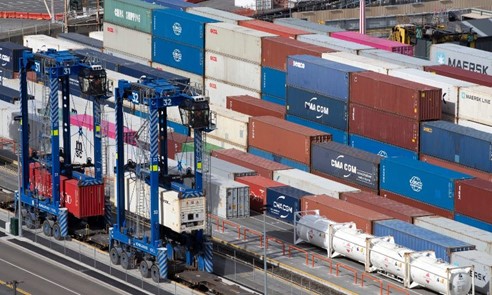
During the pandemic two years ago, many office spaces
in the SEZ areas had been vacated due to ‘work from home’ practice initiated by
the occupants. Barthwal said this had led to the demarcation of SEZs into SEZ
and DTA spaces.
”Scale economies
have become very important nowadays. Reforms in the SEZ
are in the offing so that movement of goods from SEZ to DTA and vice-versa are
not affected rendering goods produced become less competitive”, Barthwal said
at a symposium organised by the Bharat Chamber of Commerce. The official said
that the foreign trade policy (FTP) of the government had been framed keeping
in mind the global value chain.
”Our FTP has been
designed for exporters to take advantage of the global value chain. The industry, which had always sought protection in the past, will now
have to integrate with the global value chain and look at where the competitive
advantage lay”, he added.
Stating that the target of achieving USD two trillion
exports by 2030 is possible, Barthwal said that USD one trillion will be
forthcoming from merchandise exports and another USD one trillion from
services.
‘Services appear to be intangible, but there is a huge
scope to grow. We should look at the impediments which are preventing the
growth of the services sector”, he added. Barthwal said with external trade
becoming an important part of the growth engine, both the industrial and
foreign trade policies are now intertwined.
He said that there is an increasing demand by
countries to ink free trade agreements (FTAs) with India. In bilateral and
multilateral agreements, the most important aspect is to understand the policy
of ‘give and take’. If one has to take something, he also has to give
something, he said.
Barthwal said both
the UK and the US are raising the standards by bringing in sanitary and
phytosanitary issues in imported goods. ”We will have to adhere to these
standards which are becoming increasingly difficult”, he said.